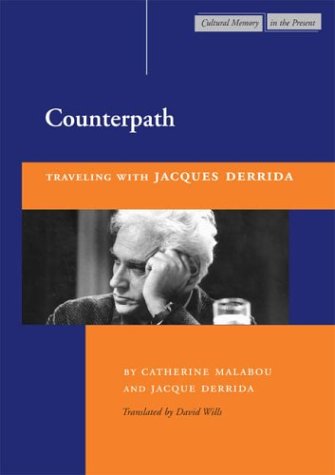Michel Foucault: Fearless Speech (2001–) [EN, TR]
Filed under book | Tags: · democracy, language, parrhesia, philosophy, politics, rhetoric

“Comprised of six lectures delivered, in English, by Michel Foucault while teaching at Berkeley in the Fall of 1983, Fearless Speech was edited by Joseph Pearson and published in 2001. Reviewed by the author, it is the last book Foucault wrote before his death in 1984 and can be read as his last testament. Here, he positions the philosopher as the only person able to confront power with the truth, a stance that boldly sums up Foucault’s project as a philosopher.
Still unpublished in France, Fearless Speech concludes the genealogy of truth that Foucault pursued throughout his life, starting with his investigations in Madness and Civilization, into the question of power and its technology. The expression “fearless speech” is a rough translation of the Greek parrhesia, which designates those who take a risk to tell the truth; the citizen who has the moral qualities required to speak the truth, even if it differs from what the majority of people believe and faces danger for speaking it.
‘Parrhesia is a verbal activity in which a speaker expresses his personal relationship to truth through frankness instead of persuasion, truth instead of flattery, and moral duty instead of self-interest and moral apathy.'”
Edited by Joseph Pearson
Publisher Semiotext(e), 2001
Foreign Agents series
ISBN 1584350113, 9781584350118
183 pages
Fearless Speech (English, 2001, no OCR; updated on 2012-12-30)
Doğruyu Söylemek (Turkish, trans. Kerem Eksen, 2005/2012, added on 2014-5-19, via)
Catherine Malabou, Jacques Derrida: Counterpath: Traveling with Jacques Derrida (1999/2004)
Filed under book | Tags: · deconstruction, geography, language, literary criticism, metaphysics, philosophy, travel

“Counterpath is a collaborative work by Catherine Malabou and Jacques Derrida that answers to the gamble inherent in the idea of “travelling with” the philosopher of deconstruction. Malabou’s readerly text of quotations and commentary demonstrates how Derrida’s work, while appearing to be anything but a travelogue, is nevertheless replete with references to geographical and topographical locations, and functions as a kind of counter-Odyssey through meaning, theorizing, and thematizing notions of arrival, drifting, derivation, and catastrophe. In fact, by going straight to the heart of the Derridean idea of “spacing,” she finally makes it seem as though Derrida has never written about anything but travel.
Malabou’s text is punctuated by a series of postcards received by Derrida from destinations such as Istanbul and Porto, Laguna Beach and Athens, which are inspired by his reading of her evolving discussion. Writing in a familiar and unguarded manner, as if he were “on vacation” from his own writing, Derrida still remains totally faithful to that work and invites the reader to reflect on much of what haunts his texts as well as his daily life, questions of distance and death, the relation to the other, and exile..”
First published as La Contre-allee, 1999.
Translated by David Wills
Publisher Stanford University Press, 2004
Cultural Memory in the Present series
ISBN 0804740410, 9780804740418
330 pages
PDF (updated on 2017-10-5)
Comment (0)N. Katherine Hayles: My Mother Was a Computer. Digital Subjects and Literary Texts (2005)
Filed under book | Tags: · cellular automata, code, intermediation, language, posthuman, simulation, speech, technology, writing

We live in a world, according to N. Katherine Hayles, where new languages are constantly emerging, proliferating, and fading into obsolescence. These are languages of our own making: the programming languages written in code for the intelligent machines we call computers. Hayles’s latest exploration provides an exciting new way of understanding the relations between code and language and considers how their interactions have affected creative, technological, and artistic practices.
My Mother Was a Computer explores how the impact of code on everyday life has become comparable to that of speech and writing: las anguage and code have grown more entangled, the lines that once separated humans from machines, analog from digital, and old technologies from new ones have become blurred. My Mother Was a Computer gives us the tools necessary to make sense of these complex relationships. Hayles argues that we live in an age of intermediation that challenges our ideas about language, subjectivity, literary objects, and textuality. This process of intermediation takes place where digital media interact with cultural practices associated with older media, and here Hayles sharply portrays such interactions: how code differs from speech; how electronic text differs from print; the effects of digital media on the idea of the self; the effects of digitality on printed books; our conceptions of computers as living beings; the possibility that human consciousness itself might be computational; and the subjective cosmology wherein humans see the universe through the lens of their own digital age.
We are the children of computers in more than one sense, and no critic has done more than N. Katherine Hayles to explain how these technologies define us and our culture. Heady and provocative, My Mother Was a Computer will be judged as her best work yet.
Publisher University of Chicago Press, 2005
ISBN 0226321479, 9780226321479
290 pages
PDF (updated on 2012-7-24)
Comment (0)
